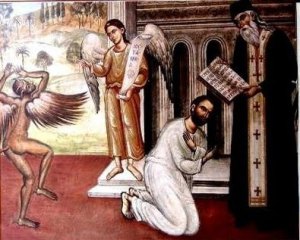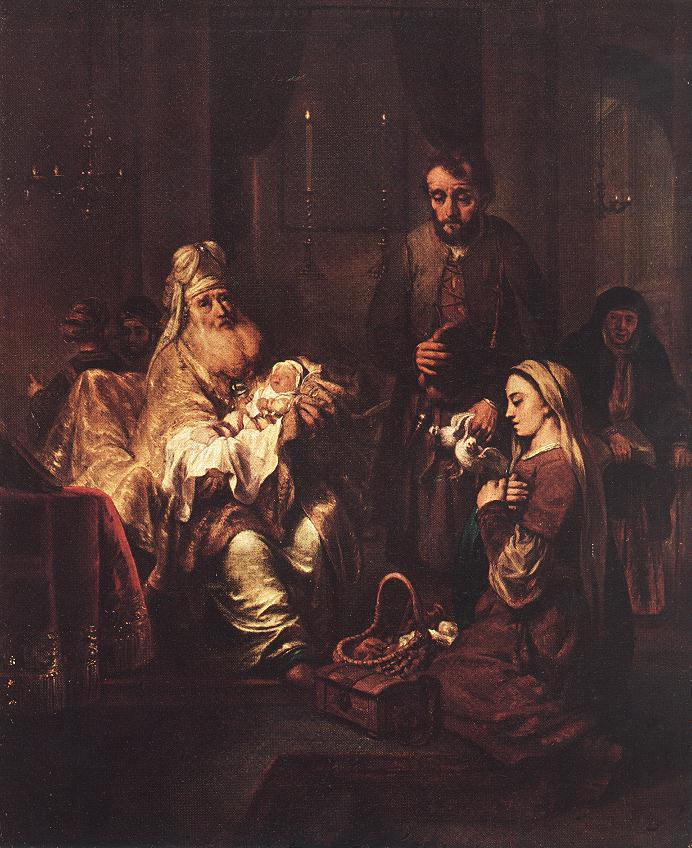I had the privilege to lead Morning Prayer, deliver the homily, and give the pre-consecrated Sacrament to the people of St. Andrew’s, Rome, whose rector is Fr. Austin Goggans, this past Sunday, July 5th. He had given me the Propers for Independence Day, so I had the privilege of speaking about Jesus’ call to love our enemies. This is the written manuscript of my sermon (some parts were changed while I was up there)
The Gospel lesson for today is Matthew 5:43-48
All you need is love, or so many say, including the Beatles. In the most recent days, we have seen thousands of hashtags with the phrase ‘love wins’ on them. And I agree, but with a caveat, in that the love that Jesus talks about in our Gospel lesson today is different from the love that culture speaks of (most of the time).
For us, our natural love is Eros– it’s based on reciprocity and attractiveness. It’s the love that cries out, “I want no other” when you lay eyes on your wife or husband. Eros is where we get the word erotic– this is a romantic love. As soon as one falls in love, one feels a strong desire to shower the beloved one with every conceivable gift. It can be a flower. It can be a beautiful object. It can be anything that truly benefits the beloved. Love is inventive and is constantly concerned about the good of the beloved. Italian expresses this strikingly: Ti voglio bene. (I wish you well). Dietrich von Hildebrand called this intentio benevolentiae (the desire for the good of the other). Not only does the lover harbor this wish, but he also wants to be the giver himself, “I wish you every possible good thing and moreover, I want that these should be given through me.” There is nothing wrong with Eros. Eros is the reason most of us are here (wink). But Jesus is telling us to move beyond Eros.
The word Jesus uses for love in this passage in the Greek is Agape. Agape is a love that doesn’t flow naturally from us. We can have Eros for our Beloved, we can have Phileo for our friends, Storge for our family, but Agape, that is something that is truly a gift from God we can choose to use. Agape love is hard love. Agape love is love that occurs when we allow God to work His Love through us.
So you are to agape your Enemies– but how, well the whole previous chapter in 5 tells us– carry their pack two miles instead of one, turn the other cheek, etc, etc. The love of enemies which Jesus demands is the attitude of the children of the new people of God to whom the future belongs. According to Kittel, “They should show love without expecting it to be returned, lend where here is little hope of repayment, give without reserve or limit. They should do good to those who hate them, giving blessing for cursing and praying for their persecutors.
Let’s set this straight– this is not Jesus calling for some utopian existence here on Earth that essentially sounds like John Lennon’s song “Imagine.” We are guaranteed that even those we love will persecute, but Jesus says– do it anyway. When we love our enemies and bless those who persecute us, we do it for the life of the world, we do it to save their own souls. Loving our enemies makes them a human to love and not just a cause to fight. And isn’t that why the church exists. Fr. Lee Nelson posted this the other day:
The Church which exists for its own sake, consumed with its own business, concerned only for her own members, is a church which has fallen short of her vocation. She is a body which gets sick because as opposed to giving life, she sucks the life out of you. The Church, as Archbishop William Temple said, “is the only society on earth which exists for nonmembers.” We exist so that our communities may flourish, so that our neighbor can get a leg up, and have opportunities previously unavailable to them. We exist to give freedom to the debtor, truth to the one who walks in error, life to the one who walks in death. Our most sacred offering, what happens on the altar this [morning], yes we receive great grace from the Eucharist, but it is given for the “life of the world.”
Folks, as Christians, we have been looking at this all wrong. We have been told by the prevailing culture that we are in a culture war. We have fought and lost because we have lost our main calling– to love God and to love our neighbors, even the one who plays loud music, and has a barking dog, and has a party every weekend. Even that neighbor. And what we are doing is not fighting them for ‘God and country’ but planting seeds of goodness, charity, and hope in a culture that has either lost those completely or changed the definition. Through the Church, Jesus is planting seeds in this garden, which is our culture. Makato Fujimura states in his book Culture Care:
“We want to change the metaphor of culture from a territory that is to be fought over to a garden that is to be nurtured. . . May our work be seeds into the soil of culture. Better yet, may these conversations strengthen our hands to cultivate that soil, so that the good seed can take root deeply and flourish. May our cultural garden, our cultural orchard, become a place of shelter for many creatures, including our own grandchildren.”
This is not us winning our salvation, or defining our lives by works-righteousness, no, this is participating in the life of God for the life of the world. This is allowing God’s mission to work through us. By his act of forgiveness on the cross, God through Jesus has instituted for humanity a new order which removes and supersedes the old world rank. This new order, on which Jesus, who is the true and perfect Israel, is King, has gathered those not just in one nation-state, but all people who confess he is Lord and is baptized into Him.
Loving our enemies, as Jesus states in the Gospel, is a distinguishing mark of who we are as Christians. If we don’t do that, then we are no better than the tax collectors or the heathens. A distinguishing characteristic of those changed by the Gospel and put into Christ should be our ability to love without the other person reciprocating. A couple of years ago there was a huge controversy about Chik-fil-a and their stance on same-sex marriage. Dan Cathy’s refusal to support gay marriage was broadcast nationwide. As expected, many of us retreated to our pre-existing trenches. We declared whether or not we’d ever eat a Chick-fil-A sandwich again. We stood by the restaurant in appreciation or boycotted it in disgust. We did what we are too good at: opposing our enemies.
While we were busy fighting, Cathy slipped unnoticed into potentially hostile territory—but not for a counter-attack. Campus Pride director, gay activist, and openly gay man Shane Windmeyer, “came out” as Cathy’s friend describing how Cathy had reached out to hear more about LGBT concerns regarding his company.
In the midst of this unprecedented dialogue, Windmeyer writes, “Dan expressed a sincere interest in my life, wanting to get to know me on a personal level. He wanted to know about where I grew up, my faith, my family, even my husband, Tommy. In return, I learned about his wife and kids and gained an appreciation for his devout belief in Jesus Christ and his commitment to being ‘a follower of Christ’ more than a ‘Christian.’ Dan expressed regret and genuine sadness when he heard of people being treated unkindly in the name of Chick-fil-A, but he offered no apologies for his genuine beliefs about marriage.”
Loving our enemies is learning to truly care for them, for who they are, even in the midst of disagreement over things like what they stand for and, in a lot of times, what they do. Jesus finally says, “Be perfect even as your heavenly Father is perfect.” Now, perfect taken out of context here could mean sinless or without error. It does not mean that here. The Revised English Bible says, “There must be no limit to your goodness, as your heavenly Father’s goodness knows no bound.” Let us be perfect in love, always striving to let Christ’s likeness shine through our lives to those around us, so that they may see good works and praise our father in heaven.
Christ’s call to love our enemies and bless those who persecute us extends to all people. This extends from ISIS to the activist to the KKK to the Black Panther to the teenage neighbor to the elderly couple. May we continue to plant seeds of goodness through our love in the ground of this culture. May we stand for the truth, but continue to love those who persecute us. May we put no conditions on our love so that those around us may meet the unconditional love of Christ. As St. Francis said, “We are called to heal wounds, to unite which has fallen apart, and to bring home those who have lost their way.” That my friends is love. It’s more than acceptance, and more than tolerance, it’s a seeing beyond the rhetoric to realize that we are all broken, wounded, and lost and are desperately in need of what Christ offers through His Church: wholeness and healing.
So we end with a practical reason to love you enemies you make a friend out of that whole experience. You may make a convert. Or it may all blow up in your face. But the one thing you will be doing is being faithful to Jesus and you will be doing it all for the life of the world.





